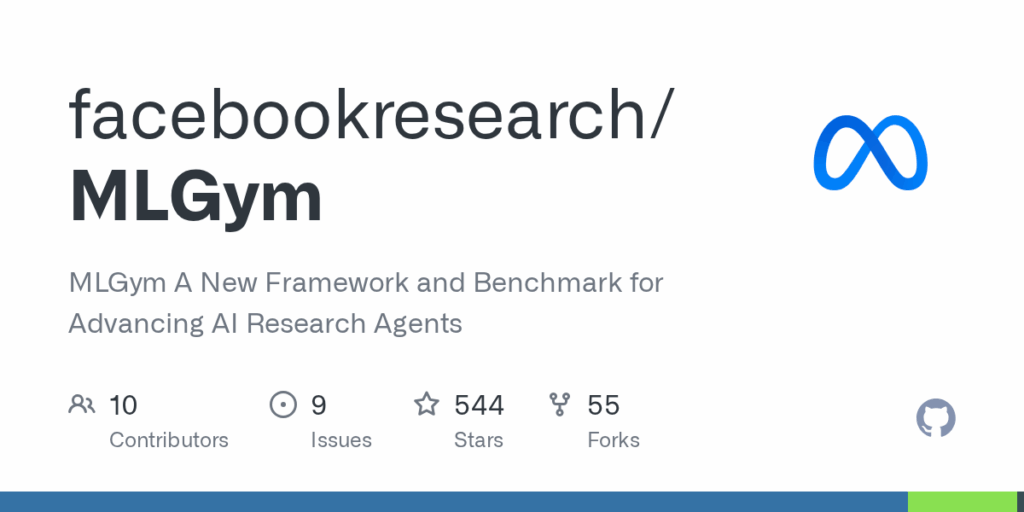MLGym
Basic Information
MLGym is a research-oriented Gym-style environment and benchmark designed to evaluate and train AI research agents, including reinforcement learning algorithms and LLM-based agents. It provides MLGym-Bench, a collection of 13 diverse, open-ended ML research tasks spanning computer vision, natural language processing, reinforcement learning, and game theory. The project targets researchers who need a controlled environment to generate data, implement methods, train models, run experiments, analyze results, and iterate on ideas. The framework is experimental and under active development, with a main branch intended to hold the latest stable release and documented breaking changes. It emphasizes benchmarking and advancing AI research agents rather than production end-user applications.








